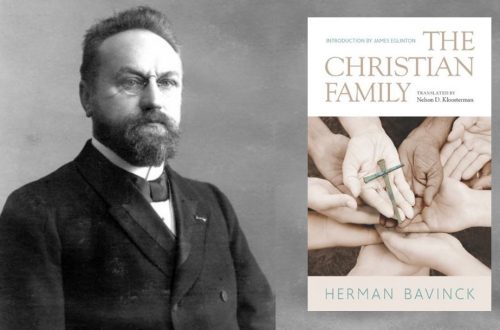 The Chronicle of Higher Education has a feature length profile of Christian apologist William Lane Craig. Craig is a keen intellect and a fierce debater. He takes on all-comers, including any of the four horsemen of the new atheism. This is a fascinating article, on a number of levels, but my favorite line is how atheist Sam Harris describes Craig. Harris says Craig is
The Chronicle of Higher Education has a feature length profile of Christian apologist William Lane Craig. Craig is a keen intellect and a fierce debater. He takes on all-comers, including any of the four horsemen of the new atheism. This is a fascinating article, on a number of levels, but my favorite line is how atheist Sam Harris describes Craig. Harris says Craig is
“The one Christian apologist who seems to have put the fear of God into many of my fellow atheists.”
Great article. Read it here.




18 Comments
James Bradshaw
I find these debates provocative and interesting. I’m not sure I’ve ever seen anyone emerge from them as a clear winner, however. Atheism as an actual affirmation of the non-existence of God is unable to provide a coherent necessity behind its system of values. Though theism and even Christianity provide the “why” behind those values, it seems unable to provide an infallible mechanism for telling us what those values are beyond a very general and vague sense.
I heard a sermon some time ago where the pastor implied that a woman who divorced her husband merely because of physical abuse was sinning. Is that true? Is contraception in marriage a moral evil or not? Is torturing enemies of war to extract information ethical or not? What about what they used to call “self-abuse”? Reformed Calvinist Steve Hays insists it’s not a sin, per se. Are parents morally obliged to seek medical treatment for their sick children or is prayer sufficient? What about slavery? Both pastors Doug Wilson and John MacArthur have argued for a Biblical system of values that permit it and insist that the American implementation of it simply “fell short”. What about end-of-life issues … to what lengths are we obligated to go to in extending life?
I’m not suggesting that people haven’t come up with answers to these questions given a hierarchy of values and various interpretations of Scripture, but without unanimity amongst believers, it all amounts to no more than people giving us their opinions. So we’re back where we started: that is, we have to decide for ourselves on many of these issues.
Jim Gardner
@James Bradshaw
“Atheism as an actual affirmation of the non-existence of God is unable to provide a coherent necessity behind its system of values.”
There is no “system of values” behind atheism. Atheism is the religious word for people who aren’t religious, which we’re somewhat stuck with because of it’s colloquial definition. In reality, it is a word which describes a vast array of people who can often share very little in common, particularly moral values, other than their belief that theism does not provide evidence of any gods — hence a-theism.
Lane Craig is a highly skilled debater, of that there is no doubt. But his semantic slights of hand are extremely frustrating to those of us who would welcome a more intellectually honest debate.
For my money, he would be much better off admitting from the offset that there is no objectively valid evidence for the existence of any gods, and that his position is faith-based, rather than trying to cajole his own audience into thinking he’s ‘proven’ something which he hasn’t (unless he is using a completely different definition of the word ‘proof’ than everyone else).
It’s all very well for those of us who pay attention to these sorts of things to pick our way through what he is actually saying, as opposed to what he would like us to think he is saying, but the net effect which these methods have on his audience, particularly those who are already on-board, can be pretty counter-productive in the long run.
It leads to dead-end arguments which make blanket assertions about everyone and anyone who isn’t William Lane Craig literate, and leaves no scope for the possibility he’s barking up the wrong tree. He has plenty of escape hatch caveats, which make it sound as if he’s saying, “If I am wrong, then…”, but what he’s actually saying it, “If you can’t prove me wrong, therefore I am right”, and that’s just flat dishonest. Moreover, I think he knows it. No-one as educated as he is could fail to be aware of the many valid objections to his modus operandi which are out there, and yet he continues to dine out on being “the apologist no atheist wants to challenge”, when in reality much of the basic logic behind his argument simply doesn’t stack up.
Daryl Little
He has said many good things and tied many an atheist in knots, but he won’t debate believers and he doesn’t believe in Biblical inerrancy…
Which makes him someone I hesitate to recommend.
Jim Gardner
If there was to be any one particular passage of the bible that you could see why people would think of it as being inaccurate what would it be?
Don Johnson
All of the Bible is couched in terms of a pre-scientific understanding of material things.
Daryl Little
It’s also comes to us, breathed out by the creator who knows all things and never gets anything wrong.
It won’t do to put the Old Testament on the level with native American Thunderbird and Coyote legends simply because the human authors didn’t study high school chemistry.
Are you suggesting that things held out as spiritual in Scripture, are somehow physical instead?
Don Johnson
God knows everything, but God also accommodates his explanations in terms understandable to the original hearers/readers. If their understanding of something physical was mistaken in some way, God was not required to correct it and there are numerous examples of this in Scripture. This is similar to a Dad explaining to a child that there is a baby in Mommy’s tummy.
Daryl Little
You’re not an inerrantist then.
I thought you had said as much once or twice before but I couldn’t remember.
That would be the source of much of your disagreement here I think, but I could be mistaken on that.
Don Johnson
I try to stick with Scripture and do not make claims for it that Scripture itself does not make, while accepting the claims for itself that it does make. I encourage others to be like a Berean and do the same.
Adam Omelianchuk
Daryl, I must take issue with you: Dr. Craig definitely affirms inerrancy. As a former student of his at Talbot, I can vouch for that.
Daryl Little
Adam,
You’re probably right, he probably does affirm it.
But does a man who believes that the guards stationed at Jesus’ tomb was a legend cooked up by Matthew, or that we can’t trust the birth narrative found in Luke because the other gospels don’t contain it, sound like a biblical inerrantist to you?
Me neither.
Adam Omelianchuk
I am not sure what you are referring to, so I can’t agree or disagree with your statement, but you can find his writings about inerrancy and judge for yourself.
Daryl Little
Here’s Craig on the guards at the tomb.
http://t.co/OqcnLNy3Di
I haven’t got the birth narrative bit handy. I’ll put it up when I can.
Adam Omelianchuk
Have you seen this? I haven’t read it, but from reading the abstract, it sounds like he defends the account’s historicity.
http://www.reasonablefaith.org/the-guard-at-the-tomb
Daryl Little
I haven’t seen it but I’ll check it out.
Thanks.
Ian Shaw
Daryl, he doesn’t believe in Biblical inerrancy? Hmm, that’s too bad. I think I’ll stick to Ravi Zacharius as my leading apologist then.
I think it’s hypocritical in the article that was linked that all the atheists start flamming the subject (Mr. Craig) as it does in other articles. If atheists were truly the “higher intellectuals” that many of them claim, they would not be atheists, but agnostics, as you cannot support a negative existential truth claim.
Jim Gardner
Atheism is a relatively recent catch-all term ascribed to those who lack a belief in the gods of religion; or that religious texts stand as evidence of specific gods. Russell and Voltaire referred to themselves as ‘classic agnostics’ for the reasons you’ve identified here.
Adam Omelianchuk
The video has bee removed.